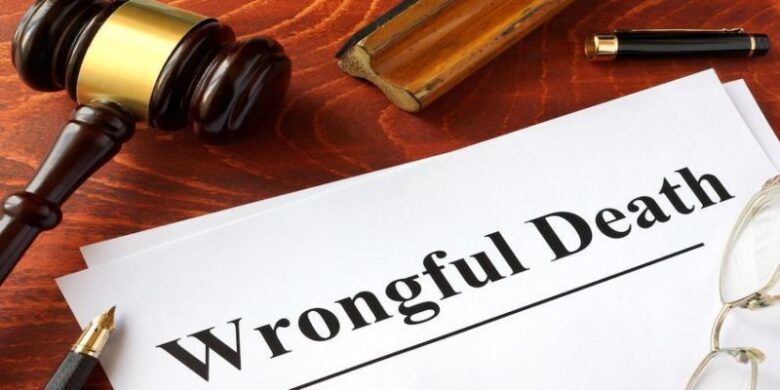The loss of a loved one is one of the greatest misfortunes a person can experience. The grief can feel insurmountable, and the burden only gets heavier when the fatality was caused by another human being, whether it was an accident due to negligence at work or a criminal act.
Along with arranging the funeral and handling the enormous emotions of the situation, you also have to deal with the financial burden and other responsibilities, perhaps including a loss of income your family depended on. In the case of a potential wrongful death, you shouldn’t have to absorb all these expenses, especially during a trying time.

That’s where a lawsuit will come to the rescue. Probably no one looks forward to the prospect of suing another individual, but it may be the best course of action to relieve your financial burdens.
You deserve compensation for expenses, pain and suffering, and lost wages. If you choose to file a wrongful death suit, it’s helpful to know how the process works.
Every case will be different, but the standard procedure goes as follows.
Hire an Attorney

Although attorneys are often painted in a negative light in the media, a capable one will be your best friend during such proceedings. Your lawyer will have been through the process before (many times, ideally), and will have the knowledge and experience that are necessary to guide you to victory.
This is not something you should try to do yourself: You have too much going on right now to worry about filing a DIY lawsuit. More important, you probably lack the knowledge necessary to achieve the best possible results.
An attorney can answer many of your questions about wrongful death. It’s always wise to discuss these with a lawyer in your state rather than trying to research them on the Internet. You’ll get more accurate and detailed answers.
Plus, a wrongful death attorney typically doesn’t charge you a dime until you’ve won the case, so that means you won’t have to pay anything out of pocket for his or her services.
Have the Right to File the Claim
Chances are if you’re thinking about filing a wrongful death claim on behalf of a loved one, you have the right to do so. However, it’s smart to check the list of individuals who are legally entitled to pursue a wrongful death claim before you start the process. According to KrwLawyers this list includes:
- Spouse
- Children
- Putative spouse
- Dependent parent
- Domestic partner
- Minor who lived with the deceased and depended on them for support
- Designated heirs
- Personal representative who contains power of attorney
This roster may vary from state to state, but the above is standard. Check with an attorney or your local court to verify whether you have legal standing to bring a wrongful death suit.
Prove You Have a Claim
With the assistance of your attorney, go over the existing evidence to determine if it’s enough to file a substantive claim. You may be aware that the death occurred because of the indirect or direct hand of someone else, but you must be able to prove it beyond a reasonable doubt in court.
The standard of proof is the same in wrongful death suits as in personal injury claims. For example, if the death was the cause of negligence, you must be able to prove that the defendant breached the standard of duty, and caused the fatality.
Evidence may come in the form of photos, videos, documentation, witness statements, and medical records. You may have to subpoena certain records or depose witnesses to get an accurate view of the situation.
Pursue Damages

Typically, two broad categories encompass potential damages: losses experienced by the next of kin, and the damages incurred between the time of the accident and the death.
The latter includes medical bills and damage to property that may have occurred at the time of the incident. It can also include a person’s pain and suffering, both mental and physical. Wages lost while the deceased was still alive but in medical care, funeral and burial expenses, and mortuary services may also be covered.
Losses sustained by the next of kin is a broader category that entails compensation for survivors who depended on the deceased. Each state will dictate the range and type of damages that can be claimed in this area, but they might include lost wages from the time of death until the victim’s retirement, pain and suffering associated with loss of companionship, and expenses associated with the cost of raising dependents who were left behind.
Supported by the counsel of your attorney, you can navigate this path with care and come out on top. It will be a challenging road that’s fraught with emotional difficulties, but the end reward should provide some comfort to make up for this painful time.



